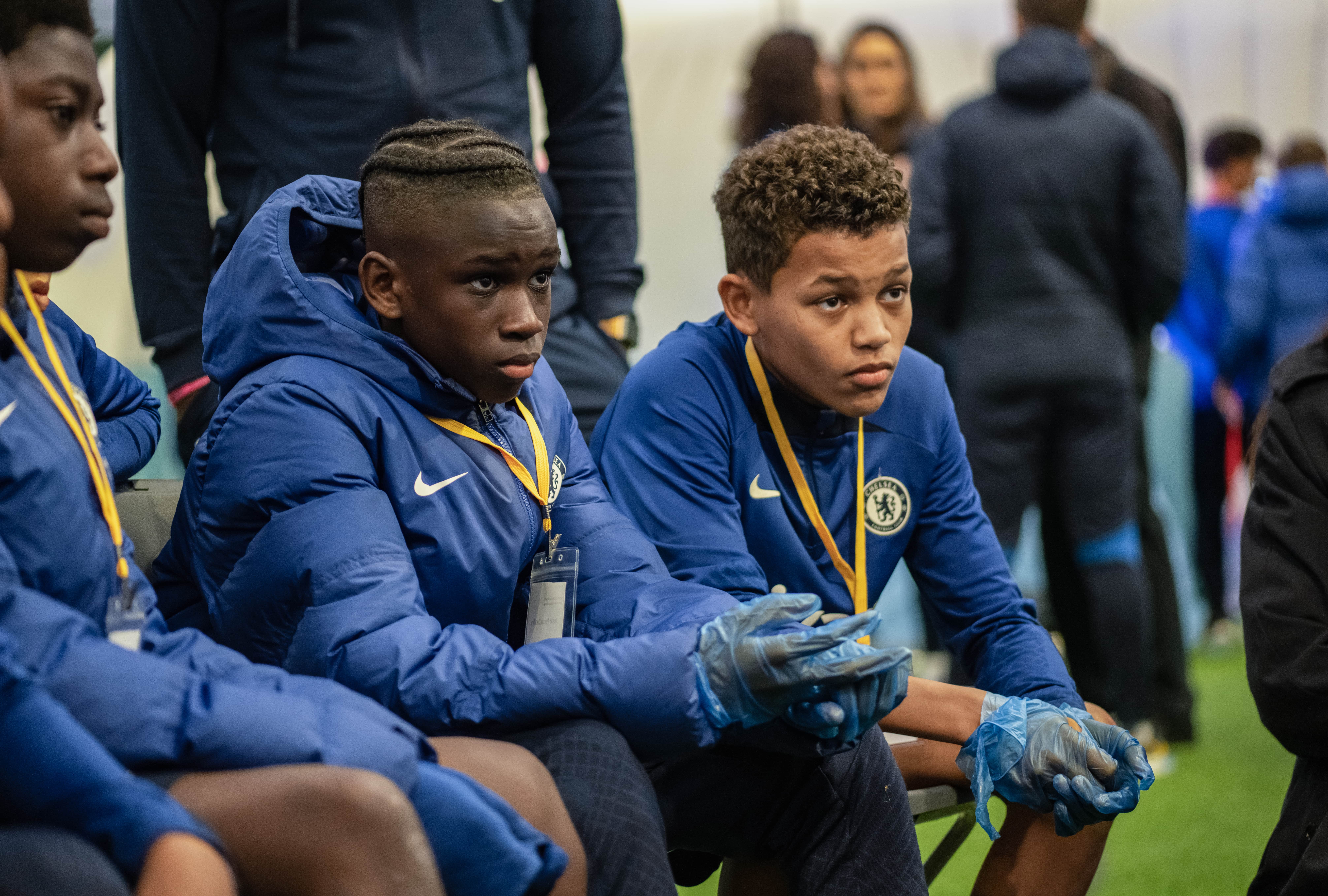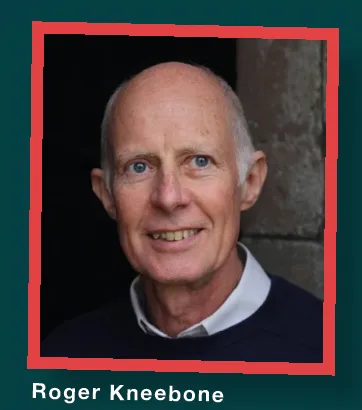
Transforming Young Lives Through Simulation
The SHARP programme, created by the Imperial College Centre for Engagement and Simulation Science (ICCESS), is a groundbreaking approach to the pressing issue of knife crime among young people. Funded initially by the Youth Endowment Fund (YEF) and later supported by the London Mayor's Violence Reduction Unit (VRU), SHARP has demonstrated the profound impact of innovative, simulation-based education in bringing about behavioural change.
Our journey with SHARP began with a clear purpose: to reduce knife carrying among young people by enhancing their understanding of the physical and emotional consequences of knife injury and highlighting alternative activities within their communities. The programme's feasibility was independently evaluated by IPSOS MORI, and we have partnered with two charities (The Prince's Trust and The Change Foundation) to deliver this initiative.
The Power of Simulation in Education
Simulation is a well-established educational tool in the medical field, particularly for training surgical professionals. SHARP leverages this approach to deliver socially educational messages and bring about behavioural change in young people. Our pilot workshops have demonstrated that 'sequential simulation,' a concept pioneered at our university by our team2, can significantly impact participants' perceptions and behaviours regarding knife crime.
Mechanisms of Change
The SHARP programme's success lies in its carefully designed mechanisms of change, which include:
∙ Creating safe and supportive environments that foster trust and respectful dialogue with healthcare professionals and between young people themselves.
∙ Developing in-depth understanding of the life-altering impacts of knife crime.
∙ Providing insights into the healthcare system, the people who work within it, and the stages of care following a knife injury.
∙ Offering positive, interactive learning experiences which go beyond traditional educational settings.
∙ Validating participants' opinions and co-creating new work based on their input.
∙ Providing emotional support to address the challenging topics discussed.
SHARP has been delivered in two phases:
Phase 1: Virtual Reality and Participatory Arts
Phase 1 featured a Virtual Reality (VR) depiction of the knife injury pathway, developed by our in-house team and based on personal testimonies from affected young people. This was coupled with an arts-based activity that invited participants to explore their personal responses to knife violence by creating images, with the support of a skilled artist and teacher. This immersive approach enabled young people to visualize and discuss the consequences of knife crime in a safe space.
Phase 2: Full-Scale Physical Simulation
In Phase 2, we brought together the same young people to participate in full-scale physical simulations of the knife injury pathway. This included paramedic roadside assistance, life-saving surgery, and an exploration of the life-changing long term consequences following recovery, all conducted by expert healthcare professionals who do this work every day. Another arts-based intervention, featuring the unique textile 'SomeBody' created by the SHARP team, further explored the psychological and physical experiences of young people, supported by trauma-informed experts. Young ambassadors from our charity partners shared their first hand experiences of knife injury, enhancing the programme’s authenticity and impact.
Outcomes and Impact
To date, SHARP has engaged 557 participants aged 11-18 across schools and youth clubs in Greater London. The feedback has been overwhelmingly positive, with requests for more sessions and participant numbers far exceeding initial projections. Our multi-modal approach, combining VR, physical simulations, and arts-based activities, has proved effective in addressing these complex issues.
Expanding SHARP: Clinical and Criminal Justice Pathways.
If there is a knife in a situation, a moment’s impulse can lead to a young person being either injured or arrested. We want to give young people information to help them make safer choices and live safer lives. Building on our current success, SHARP now aims to expand its scope in two ways:
1. Clinical Pathway (Phases 1 and 2): We plan to consolidate and extend our work around knife injury by scaling up our workshops across London and beyond. We will revisit schools we have already worked with and establish partnerships with new ones.
2. Justice Pathway (Phase 3): We will explain the crime system pathway which lies ahead if someone carries a knife or joins others who do. This leads from arrest and custody to youth court hearings and possible sentencing.
We are working closely with police, solicitors, barristers, magistrates, judges and experts in the youth justice system to provide non-judgemental and age-appropriate information.
Combining health and justice pathways through VR or physical simulation has not previously been done, and we believe it will provide invaluable insights into the long-term implications of carrying a knife.
Insights and Future Directions
Implementing SHARP with nearly 600 students has provided us with invaluable insights into the complex roots of knife violence. Engaging closely with young people has highlighted underlying factors and given us authentic perspectives.
Our SHARP workshops take a multidisciplinary approach. We combine targeted educational components with community involvement, cultural sensitivity, long-term support, evaluation, and collaboration with stakeholders. These ensure young people’s understanding, engagement, and sustained commitment to prevention efforts. Our promising practices underscore the importance of a holistic, community-oriented approach to effectively address the complexities of knife violence.
The Invitation: A Call for Collaboration
We know that young people have not yet developed adult skills of consequential thinking. It’s natural to act impulsively and to want to be part of a group. Our vision is to provide a setting for non-judgemental conversations between young people and expert professionals, opening discussions and providing strategies and options. For that we need wider support.
We are working to bring together schools, stakeholders, funders and policymakers to achieve something that has never been attempted before – integrating health and justice systems to help young people make safer choices and live safer lives.
As we continue to develop and expand our programme, we invite stakeholders, experts, and community members to join us in this work. This multifaceted approach, supported by collaboration with health and justice system experts, holds immense potential to transform the narrative surrounding knife violence.
By providing tangible insights and fostering informed decision-making among young individuals, we aim to reduce the prevalence of such incidents and foster safer communities for all.
For this next stage we need financial support – from individuals, organisations, businesses and agencies who share our passion for making our streets and communities safe places for our young people to grow, develop and reach their full potential.
Our SHARP programme highlights the power of innovative, simulation-based education coupled with the visual arts in addressing critical societal issues. Through our work, we aim to empower young people to make informed decisions, avoid knife carrying, and build and sustain safer communities. We are committed to expanding our reach and impact, and we look forward to continued collaboration with our partners and supporters in this crucial mission.

Roger Kneebone
Professor of Surgical Education and Engagement Science, Imperial College, London
www.imperial.ac.uk

Further Reading:
[1] https://www.rogerkneebone.co.uk/about and https://profiles.imperial.ac.uk/r.kneebone Prof Roger Kneebone has an international profile as an academic and innovator. He publishes widely and speaks frequently at national and international conferences. His book Expert: Understanding the Path to Mastery was published as a Penguin paperback in 2021. Roger is especially interested in collaborative research at the intersections between traditional disciplinary boundaries and brings his considerable knowledge and insight to thinking on art and the nature of craft. Since 2019 Roger has been the fourteenth Professor of Anatomy at the Royal Academy of Arts, where he is exploring how artists, doctors and scientists perceive the human body. And he hosts a fortnightly podcast, Countercurrent, in which he invites scientists, artists, musicians, clinicians, craftspeople and writers to take part in free-flowing discussions.
[2] https://sharp-project.org/team/